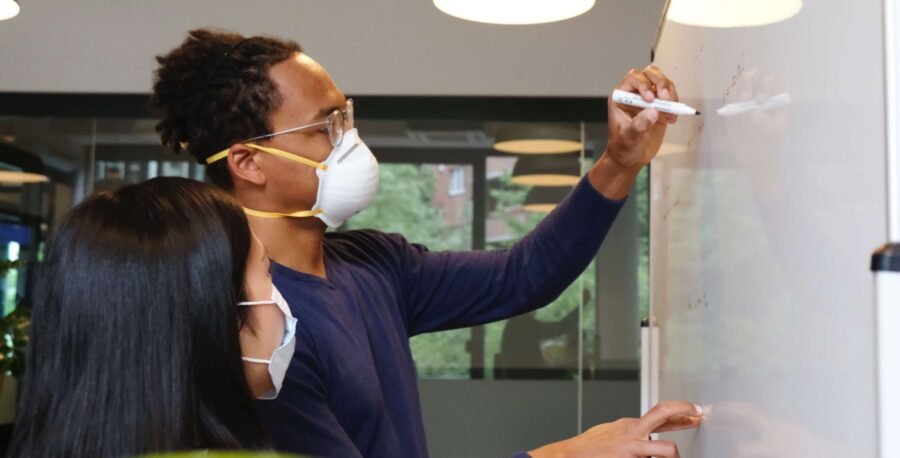According to an ABC news story, a Victorian abattoir avoided a coronavirus outbreak after a contagious inspector visited their facility. The headline reads: “Meatworks may have dodged bullet by ignoring official advice.” While there’s some truth in that, ignoring advice doesn’t avoid problems. Here’s what actually happened: the meatworks took responsibility for managing risk. NDIS providers need to do the same – and not just for the coronavirus.
How did they manage risk? They insisted that the inspector wore PPE including a face mask. Once notified that the inspector had been contagious, they immediately shut down and arranged tests for all workers. When the health department gave them the go-ahead to return to work before the test results came back, they didn’t simply ignore this advice. They considered the risks, consulted experts, evaluated the possible impact on their business and developed a risk management strategy. “We still wouldn’t go back to work until we had a feel for where the testing was going.”
That’s what the NDIS Practice Standards require providers to do – not just in relation to a pandemic, but in relation to participant abuse and neglect, financial viability and business continuity. Auditors tell us that risk management is an area many providers neglect.
Depending on how you read it, the meatworks story might say something about why people don’t manage risk. The test results showed no workers were infected, so it’s possible that the strategy was wrong after all. Perhaps the meatworks should have re-opened sooner. If they had acted on the official advice there would have been no problem. The department was right!
This is a flawed way of thinking called survivor bias – which means that we repeat risky behaviours that could have easily ended in disaster, precisely because we survived. We set out without a plan, just winging it and, if we succeed, we are convinced we’ve got the knack. So, next time, no planning needed. Obviously, if we repeat near-misses, we’re sure to get hit eventually.
Planning needn’t be boring. You can replace the adrenalin rush of risky business practice with the excitement of achieving the goals you’ve set. Or the pride of acquiring the knack for making the smart moves. We’re sure the meatworks management feel pretty good about themselves, the staff feel confident and the community owes them a debt. No-one is telling them that they were wrong. That’s a pretty good outcome.
Risk management is a technique and a skill. Many, probably most, of us need to learn it. The NDIS Practice Standards require business planning and risk management. Auditors look for specific techniques. Providers must identify, analyse, prioritise, treat and monitor risks.
To help providers meet all the NDIS requirements PQplus has created an online compliance training program called Practical Audit Prep. It pays particular attention to risk management and planning requirements, and gives you the tools to do it. Check it out!

